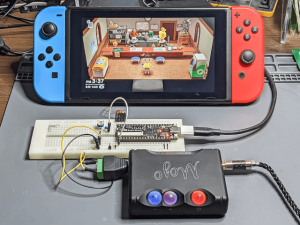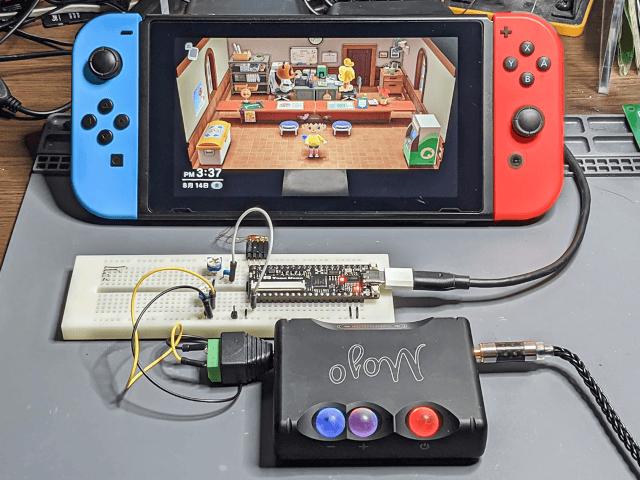More actions
No edit summary |
No edit summary |
||
| Line 2: | Line 2: | ||
|title=Nintendo Switch I2S to S/PDIF | |title=Nintendo Switch I2S to S/PDIF | ||
|image=nintendoswitchi2stospdif02.png | |image=nintendoswitchi2stospdif02.png | ||
|description=I2S to S/PDIF conversion on SiPeed Tang Nano (GOWIN GW1N-LV1) which aims to convert Nintendo Switch | |description=I2S to S/PDIF conversion on SiPeed Tang Nano (GOWIN GW1N-LV1) which aims to convert Nintendo Switch internal I2S signal. | ||
|author=puhitaku | |author=puhitaku | ||
|lastupdated=2020/08/15 | |lastupdated=2020/08/15 | ||
Latest revision as of 12:45, 6 July 2024
| Nintendo Switch I2S to S/PDIF | |
|---|---|
 | |
| General | |
| Author | puhitaku |
| Type | Remote Play and Streaming |
| Version | 2020 |
| License | MIT License |
| Last Updated | 2020/08/15 |
| Links | |
| Download | |
| Website | |
| Source | |
I2S to S/PDIF conversion on SiPeed Tang Nano (GOWIN GW1N-LV1), mainly aims to convert Nintendo Switch's internal sound signal.
The project was motivated by the fact that while Nintendo claims that the Switch supports USB DACs, it doesn't seem to support UAC 2 and 3, which are somewhat high-end. After trying various DACs, it became clear that only cheap DACs worked well with the Switch, while the high-end ones did not. This raises questions about whether Nintendo knows why USB DACs are necessary and how the Switch's headphone output sounds.
While achieving full-digital sound output is easy in TV mode using an S/PDIF splitter from the HDMI signal, it is not as straightforward in non-TV (portable) mode. The Switch's only options for audio output in portable mode are the poor-quality headphone output and incomplete UAC support.
Therefore, the project aims to directly extract the digital sound signal from the Switch to enable better audio output.
Screenshots

(Orange LED on the Chord Mojo indicates that it's receiving 48kHz digital sound.)
